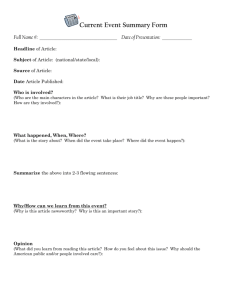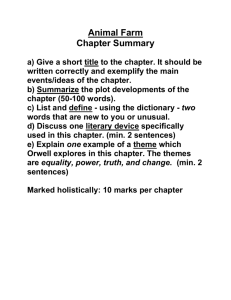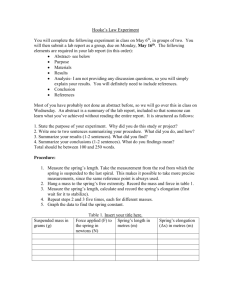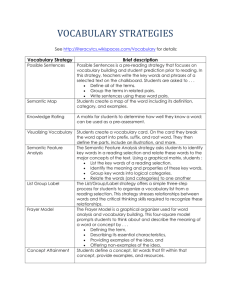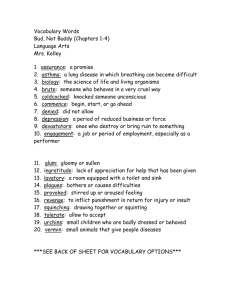Semester 2, Day 4
advertisement
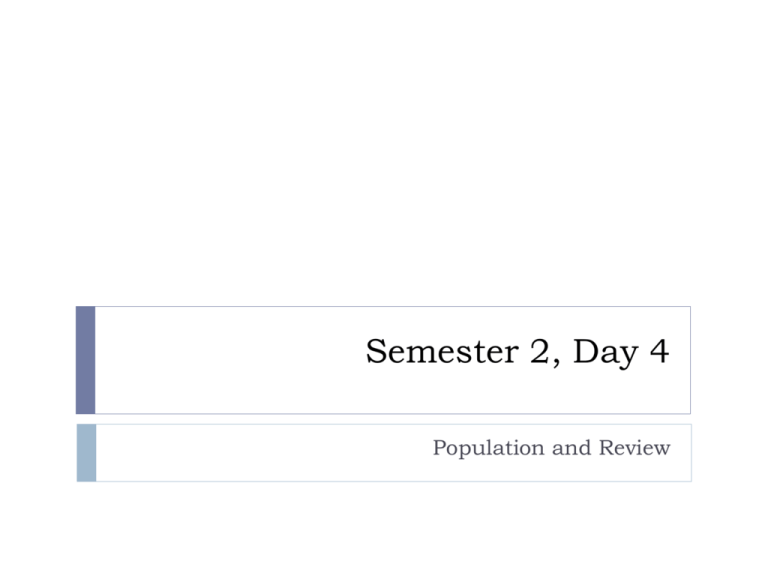
Semester 2, Day 4 Population and Review Homework Cornell Notes on Section 2.2 Questions 1-5 on Section 2.2 Quiz Question 1: Given a word bank, draw and LABEL a diagram of the water cycle. Questions 2-3: Label the cycles correctly. You are given a word bank. Question 4: short answer Reading/Work Time Cornell notes on 4.1 and 4.2 Section 4.1: Population Dynamics Vocab #1 Definition definition definition definition definition Vocab #2 Definition definition definition definition definition Important Concept #1 Description description description description Important Concept #2 Description description description description Summary: Summarize findings in 3-5 sentences. Summarize findings in 3-5 sentences. Summarize findings in 3-5 sentences. Summarize findings in 3-5 sentences. Summarize findings in 3-5 sentences. Answer following questions: Section 4.1: #1-6 Section 4.2: #1-6 Chapter 4 Assessment: #1-15, 17-23 Review of Ecology Students are struggling with vocabulary and describing concepts Vocab Sheets Vocab/Concept Definition/Description Ecological Levels of Organization Describe our world from smallest to largest Organism Single individual Population Group of same species at same time in same space Community All living species in an area Ecosystem Living and non-living factors in the same area Biosphere Layer of earth where all living things are Water Cycle Describes how water circulates between living and non-living things Ecology Vocab Cell Properties of Life Bacteria Archaea Plants Animals Fungi Protists Ecological Levels of Organization Organism Population Biological Community Ecosystem Biosphere Ecology Biotic Factors Abiotic Factors Biodiversity Habitat Changes in habitat Phototrophs Chemotrophs Energy Heterotrophs Climate Changes Human Activity Non-Native Species Population Size Rates that increase pop. Size Rates that decrease pop. Size Graphs of Births & Deaths Autotrophs Herbivore Carnivore Omnviore Deteritivore Decomposers Food Chain Food Web Direction of Arrow Trophic Levels Primary producer Primary consumer Secondary consumer Tertiary consumer Energy pyramid Biomass pyramid Numbers pyramid Biogeochemical Cycles Water Carbon & Oxygen Phosphorus Nitrogen Importance of water, carbon, oxygen, phosphorus, & nitrogen
